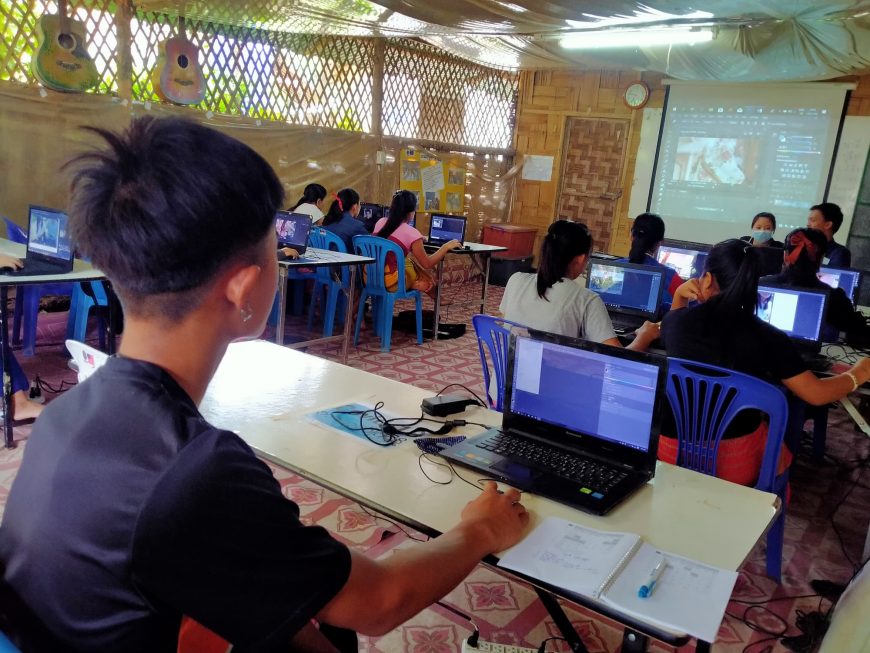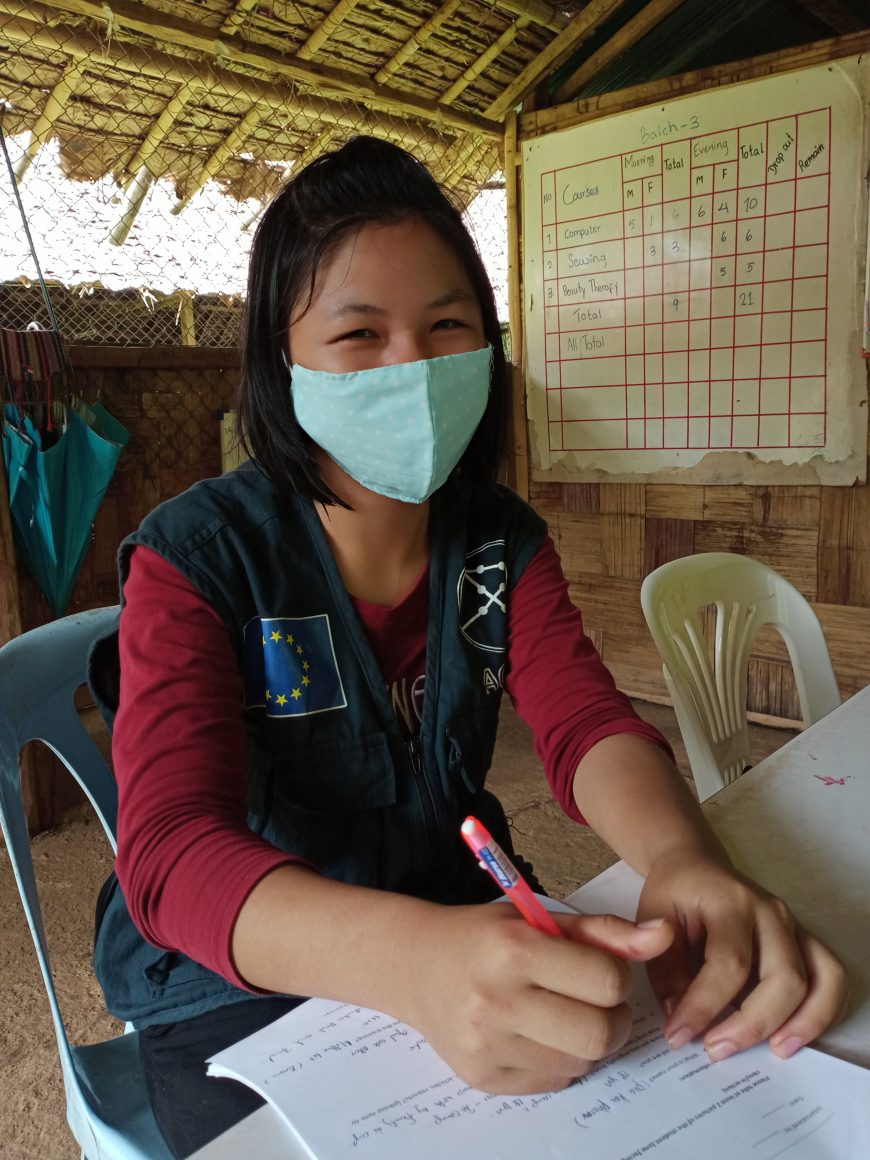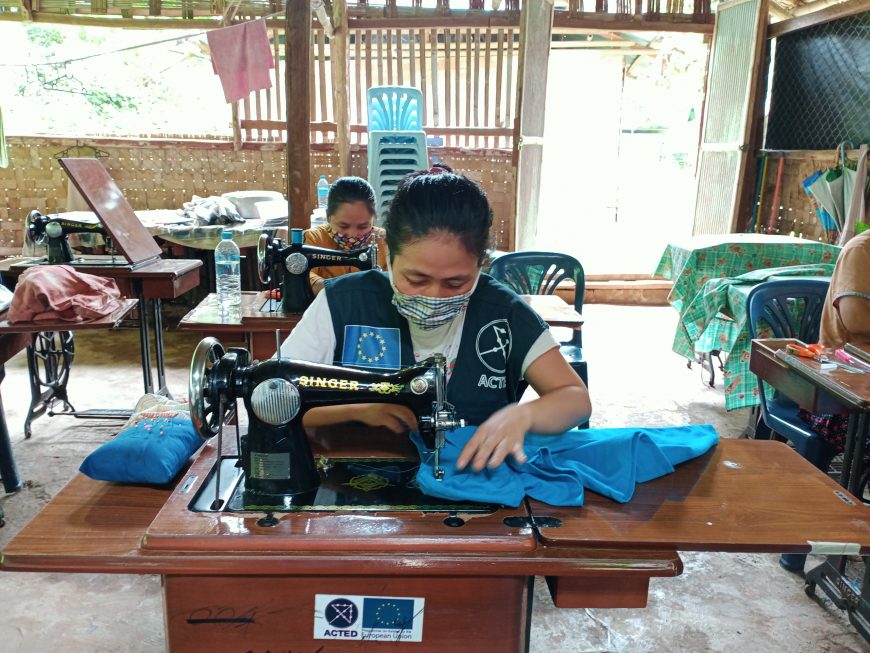Twisting roads running through rice fields, mountains, and wild green forests take us from downtown Mae Hong Song to Ban Mai Nai Soi and Ban Mae Surin refugee camps in northern Thailand. Hundreds of bamboo houses roofed with leaves sit among small shops, improvised restaurants, churches, temples, and schools.
The camps have been here for more than thirty years and are currently home to over 12,000 refugees who fled the conflict in Myanmar.
ACTED has been working with the support of the European Union to provide vocational training to the camp residents since 2015. The idea is to increase their skills to prepare them for their voluntary return to Myanmar.

Supporting Myanmar refugees to return
Over 1,500 camp-residents have taken part in courses since the beginning of the program in 2013. Three advanced-level vocational training courses are currently available. They are all designed to match the actual employment needs in Myanmar, despite the limitations posed by the context and camp conditions. These focus on: sewing, hairdressing, and computer skills.
All of them are complemented by a life skills course designed to ensure that the participants have all the necessary information and tools to work. How to manage time, make decisions, communicate, work in a team or develop a CV are some of the topics covered during the life skills course.
To maximize the impact of the vocational training courses, ACTED also offers 6-week internship opportunities in Myanmar and Thailand with private sector employers.
Allowing yourself to have big dreams

One of the refugees who are participating in ACTED’s computer course is 18 years old Pra Kar Phorn. She was born in Ban Mai Nai Soi refugee camp in Thailand, where her parents flew more than 20 years ago. She doesn’t know how life is outside a camp: she grew up, had her everyday life and made friends all within the camp where she was born.
When a friend told her about ACTED’s computer course she enrolled right away. She says: ‘Computer skills are very important and helpful, so I am very happy to finally get these skills and opportunities like others outside the camp.’ Pra dreams of going to Australia and using her new skills to get a job and start a new life with her parents.
Being a part of the future
Kay Reh, 16, a refugee attending the same training as Pra, highlights the favourable conditions of the training with the teacher being pleasant, helpful, and supportive, answering all questions, and allowing participants to gain countless benefits at the professional level.
Kay is dreaming of starting his own computer teaching company, so he can give others the same chance he got from ACTED’s project to create a sustainable livelihood for themselves. As he says: “Computers are our future and I would like to help more young people to be a part of that.”
Computers are our future and I would like to help more young people to be a part of that
It is never too late to learn

ACTED’s Advanced Sewing Course is particularly popular amongst women. Naw Has Htoo, 40, has been living in the camp for the past 25 years. Before attending ACTED’s Sewing Course she stayed at home to take care of her family. Naw is hoping that her new sewing skills will help her to support her family that since COVID-19 has been struggling to cover their basic needs.
She plans on opening a small sewing business in her home, where people can come and get their clothes repaired. This way she will still be able to take care of her family. She explains: “I am happy that we have been allowed to live in Thailand for so many years but there are no livelihood opportunities for us here unless we get new skills and open a small business.”
Naw would like to complete an internship in Myanmar to further develop her new skills but also to witness for herself the reported improvements in the situation in Myanmar over the last years. She is dreaming of going back to Myanmar so that her children can have a brighter future: “Now I have the chance to get some new skills and maybe go back to Myanmar. That would help me to provide a better future to my children.”
Returning to a normal life
Participants of the Advanced Sewing Course also include Mu Pan, 23, who is struggling to provide enough income for her family. As her father is too old to work, Pan is the sole provider which is a role that comes with a lot of pressure.
She enrolled in the course to get support to open her own tailoring shop. She has been very happy with the project: “When this course started I was really happy and considered it a step towards opening my own shop. The stress I went through with my family had left me distraught. Attending the course helped me feel normal again, and move forward to return to a normal life.”
Mu is confident that she with her new skills will be able to support her family during these difficult times, especially given the COVID-19 crisis which has cost many of her friends to lose their jobs: “I am much happier than before; the course is completely life-changing. I saw a huge improvement in my life and my overall wellbeing.”
Pra Kar Phorn, Kay Reh, Naw Has Htoo, and Mu Pan’s stories are just four out of the 1,500 students ACTED has offered a chance to participate in a vocational training course.
ACTED’s follow-ups with graduated students indicate that many of them are optimistic about their future and some have already returned to Myanmar and gotten jobs.
A common denominator for all the students ACTED has talked to, is that they now have the ambition and opportunity to build a brighter future for themselves. A privilege that many unskilled youths in camps still cannot afford.
ACTED hopes to continue support youth to prepare for a safe and dignified return and create a livelihood for themselves even after project completion in December 2020.